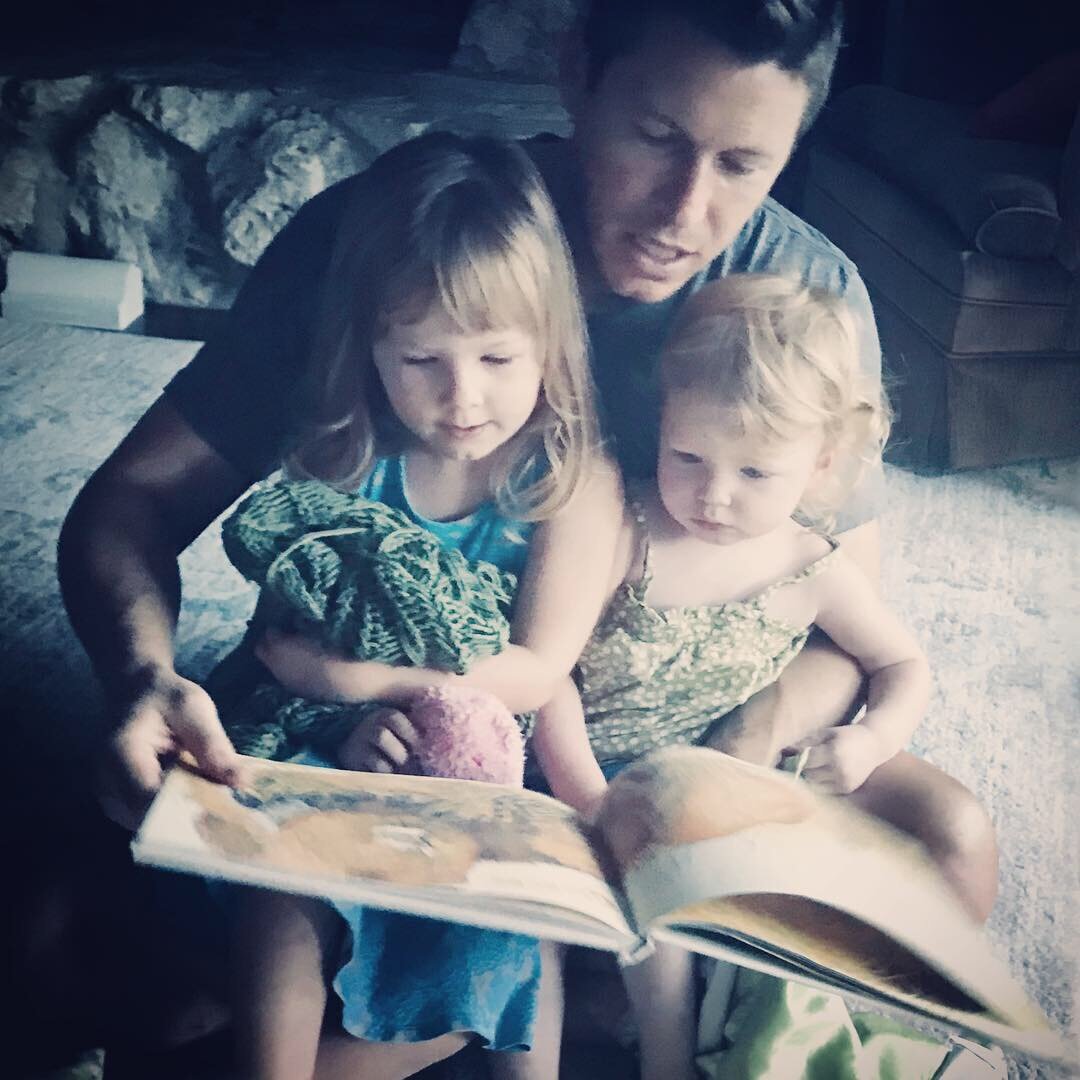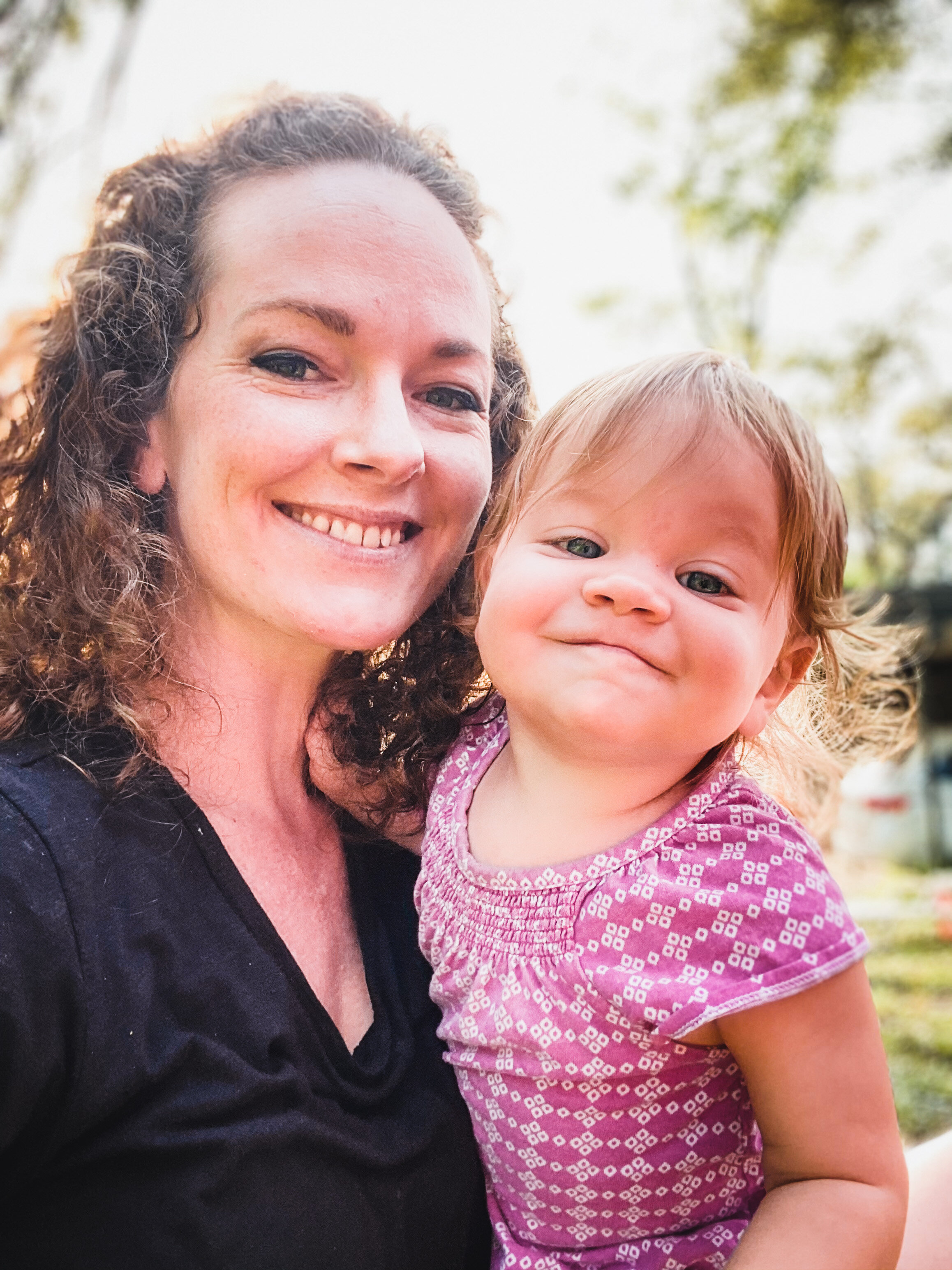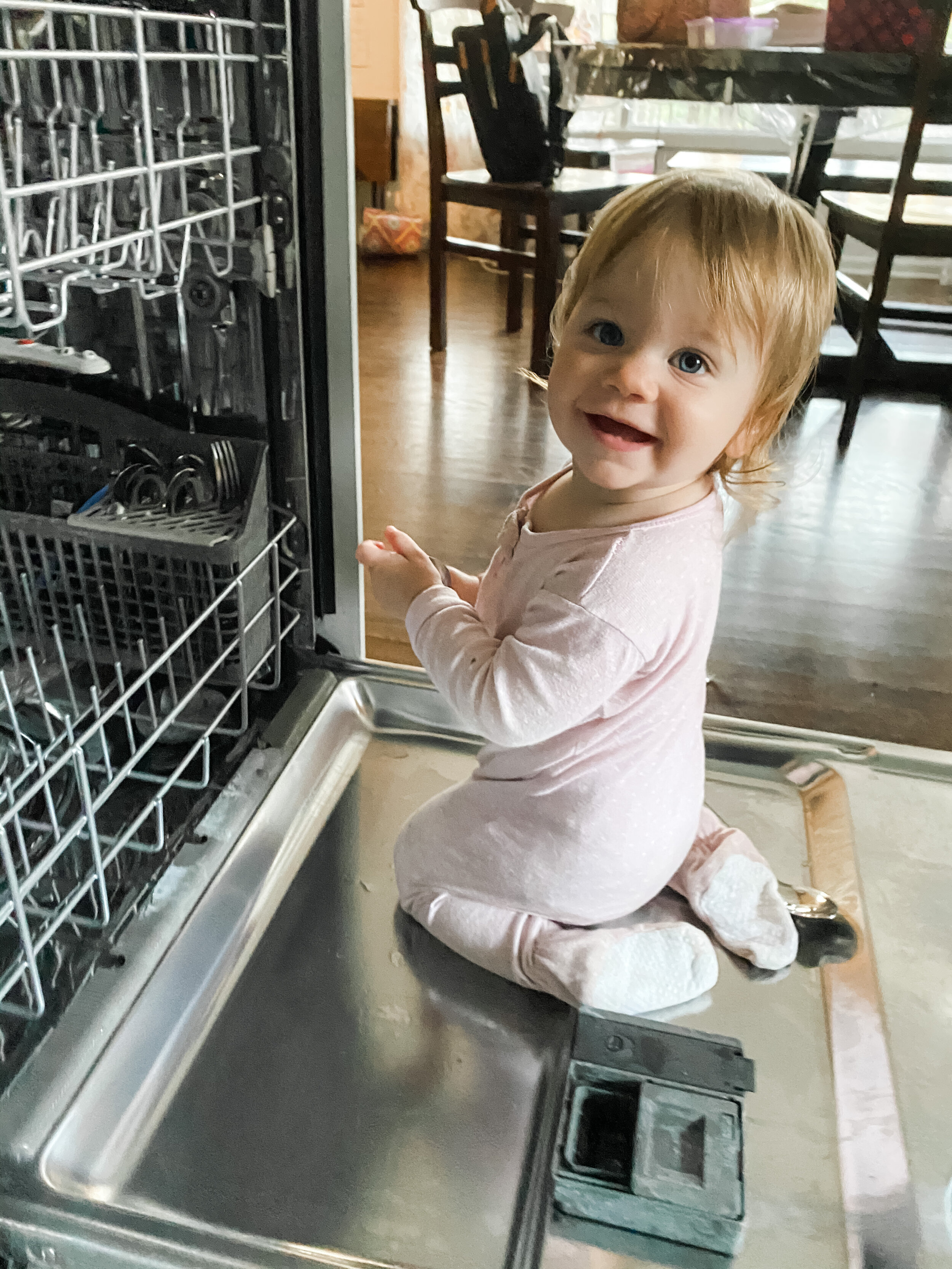8 Damaging Myths for (New) Moms and Liberating Truths to Dispel Them (Part I)
Good moms don’t act like this. Good moms don’t feel like this.
What is wrong with me?
Motherhood is supposed to come naturally for women—am I defective? I must not be cut out for this.
We all pick up ideas about what motherhood should look like or what it means to be a good mother, either implicitly through cultural portrayals and casual comments or explicitly through taught expectations, both well-meaning and less benevolent. And when our experience doesn’t match these expectations—either our own or those of others—we assume that the problem lies with us. We are not doing it right. We are defective in some way. We are not cut out for the task—the task that, by the way, all real women are naturally born to do effortlessly. Ergo, we must not be a good/real/godly/worthy-of-love woman.
When we find ourselves having a different experience from the one we expected, we could shrug our shoulders and think, “Hmm, how interesting,” and go on with our lives, but so many of us instead allow this discrepancy to become a red flag waving wildly over our insufficiencies. Our brains insert this insidious “if” clause in front of each expectation: “If you’re a good mom, DOT DOT DOT.” (I wrote out that ellipsis to make sure you caught the ominous tone.)
Even if we don’t articulate these conclusions in words, they can swirl around in our hearts and poison our souls. When we blame ourselves for everything that goes “wrong” and internalize harmful, untrue messages about what being a good mom looks like, we only make the problem worse, adding guilt and anxiety and shame to the already enormous pile of complicated emotions that comes with parenting little humans.
The truth is that there’s no perfect mom who can meet the varying and ever-changing needs of her children effortlessly and immediately and without help. There just isn’t. And there’s no one way to be a good mother: there are as many ways as there are children on this earth.
It’s time to expose this mythical creature called The Good Mom for what she is: a fantasy, a chimera.
The tricky thing is that usually (always?) we are unaware that we have built up this fantasy mom in our heads. It’s natural, unavoidable even, to imagine what we will be like in this new role. That’s just how our brains work: we gather information from every interaction we witness and every conversation we have and then unconsciously organize it and store it away to inform our behavior when our turn comes. But our information is—especially with something as intimate and complex as parenting—woefully incomplete. Women’s experiences vary so widely, and so much of motherhood is nearly impossible to put into words.
And then there’s the mom shame: the culture of impossibly high expectations for mothers who have to “do it all” with a smile on their faces, an eternally “happy heart,” and a Pinterest-perfect home. Admitting that our lives don’t look like that photo we see on Instagram feels like admitting to being a complete failure as a person, so we rarely do it. Which only perpetuates the myth.
The first step, therefore, is to name them—to name the damaging myths that cast us into the category of “not good enough” when we don’t live up to their standards.
The second step is to share our real experiences in all their mess and mayhem—to tell our stories and in so doing take ownership of our narrative, both about ourselves and about motherhood in general.
Below are some of the myths I’ve encountered, followed by the truth I’ve experienced and observed that can help to dispel them.
Note: the experiences articulated in these myths are, in fact, true for many moms—that’s how they become myths. The problem isn’t that they are never accurate; rather, the problem is that they are not always accurate for all moms. Our tendency is to take inventory of all the ways that “good” motherhood looks and then expect all of them to be true for us, even when some of them may contradict one another (something I’ll address more specifically in Part II of this post). If you read through this list and find yourself thinking, “But that’s actually exactly how it was for me,” congrats! I’m genuinely happy for you. But please remember that it’s not that way for everyone, and try to talk about your experiences as just that: your experience of motherhood, which may be vastly different from that of the woman sitting across from you.
Myth #1: You will fall in love with your baby at first sight.
Before I had my first, I had heard so many glorious stories of people falling head-over-heels in love with their babies, but when my first daughter was born, I was in no state to fall in love with anyone. I was just trying not to literally fall down on the floor. I had given birth standing up, and due to dehydration (it had been over 12 hours since I could keep down liquids) and blood loss (I was hemorrhaging), I lost consciousness immediately after they placed the baby in my arms. (Thank goodness my husband was there to catch and support both of us!) When I came to, I was walked/carried to a bed, and the midwife began trying to stop the bleeding while my husband held the baby. When I saw her again, it was to nurse briefly, and then she was whisked away again so that I could sleep—which of course I couldn’t do since I was hyped up on adrenaline from the ordeal. The primary emotions I remember feeling were disorientation and bewilderment, plus a vague relief that it was over. It’s fair to say that I was probably in shock, as are many women after a less-than-ideal birth experience.
The next few days were a blur of trying to get her to latch properly, learning how to change a diaper, trying to sleep, and riding the rollercoaster of postpartum hormones that had me crying uncontrollably several times a day for no apparent reason. I had an intense desire to care for that little creature who had suddenly appeared, and I worked hard to meet her needs and minimize those agonizing, pitiful cries. I wondered at her tiny body and wrestled with the floods of emotions that would regularly overwhelm my sleep-deprived brain. But nowhere in there was the euphoric excitement of falling in love.
As days turned into weeks, and weeks into months, things didn’t get much easier. My body was stronger and my mood swings smaller, but taking care of this little person continued to be really, really hard. She started to fight sleep. She wouldn’t let anyone else hold her. She fussed frequently and rarely smiled. She was not a lot of fun, and I found myself wondering how people possibly enjoyed this stage of parenting. Since it was all I knew (not having grown up around babies), I assumed this was normal for a baby her age (and mostly, it was, though I’ve since learned that she was on the difficult end of the temperament spectrum).
People would often ask, “Are you just so in love with her?” and each time I would force a smile and mumble “mmhhmm” and hope they would go away quickly. I loved her, yes, for sure. But I was not in love with her. Since this was obviously not the way I was supposed to feel, I kept that information to myself, shrinking deeper into the isolation and shame that so often accompanies early motherhood.
I assumed this was just the way I was: I simply wasn’t really the mom type. Luckily, unlike so many women in our culture, I had not been raised to connect a mothering instinct with my worth as a human being, so while I was disappointed and a little ashamed, this didn’t destroy me (as it could easily have done). I was also too busy dealing with what I now recognize was mild postpartum depression.
My second baby was easier, and staying on my anti-depressants through pregnancy helped fend off the postpartum depression, but I still didn’t have any of those melty, sappy, jittery feelings. My first child was not yet two and only finally learning to walk, so it was mostly just survival punctuated with moments of sweet fun. Joy, yes. And lots of cuteness. But in love? Nope.
It wasn’t until my third that I finally understood what people meant when they talked about being in love with their babies. This one cried only when she needed something and otherwise cooed and cuddled. Soon she was smiling and gurgling, happy to be held by her dad or grandmother, content to watch the world around her for long, uninterrupted stretches. And the eye contact, oh, the eye contact! . . . so different from my first. The way she stared into my eyes and let me stare back, our souls speaking in a way deeper than words . . . I finally felt those warm fuzzies, that mixture of affection and desire and excitement and tenderness that we call being in love. Lo and behold, I was capable of those feelings. I wasn’t broken after all.
Of course, I wasn’t actually ever broken. I was just human, dealing with a difficult baby and postpartum depression. But here’s the really important thing: I was still a good mom to that difficult baby despite the lack of warm fuzzies. I was responsive to her needs, present to her feelings, attentive to her signals. I was a very good mom. And that has nothing to do with how I felt. Love, after all—at least the kind that matters, the kind that God calls us to—is an action, not a feeling. Warm fuzzies may sometimes precede or result, but they are by no means a prerequisite.
Note: intense feelings of dislike, anger, or revulsion toward your baby are signs of emotional health problems that can follow delivery, and these should be attended to with gentle care and seen as the illnesses that they are. But not feeling overwhelmed with heart-melting infatuation at the sight of your baby is not a sign that there is something wrong with you—as a mother or as a person. And it definitely does not mean that you are not or cannot be a good mom.
(And in case you’re wondering, my first has grown into a sensitive, emotional, thoughtful and yes, still difficult girl, and I love her fiercely, certainly no less than my other two.)
Truth #1: You may or may not fall in love with your baby at first sight or ever, and that’s ok because it has zero impact on your ability to love your child well.
Myth #2: You will hate every moment you’re away from your baby (and should feel guilty about it).
The message we often receive is that (good) mothers love every minute they get to spend with their babies and naturally cannot stand to be separated from them (since they’re madly in love, of course). Going away for a hour or four or 24 will feel like torture, the myth says, and don’t even think about the emotional torment of going back to work.
This may very well be the way you feel or felt, but the way we internalize this message is that, if we actually enjoy time away from our babies, there is something wrong with us.
Now, I have certainly felt that longing—looking at pictures of your baby only minutes after finally getting away for a moment to yourself, wondering how she’s doing and if she is missing you terribly, wishing you could snuggle or squeeze of those impossibly soft, chubby thighs. But my primary reaction to getting away from my babies for a bit of “me time” is aahhhh, finally. I’m sure that being an introvert is part of it, as is my innate desire for intellectual stimulation. But I also just want. a. break.
Motherhood is relentless. This was the thing that surprised me the most, I think. It just never, ever stops, even when they’re sleeping because that’s when I’m trying to sleep or shower or eat or clean as fast as I can while constantly wondering if I hear the baby waking up. The only way for me to get a real break mentally and emotionally is to remove myself physically from the general vicinity of my baby such that I cannot attend to her even if I wanted to. Only then can I turn off my mom-radar and allow myself to re-connect with other parts of myself—parts that, by the way, don’t and shouldn’t cease to exist just because I’m now also a mother.
It can take a little while to adjust to that separation. I remember the first time I spent a night away from my second, taking an overnight solo trip to Savannah. The first day was . . . weird. I felt like something was missing, like I wasn’t sure what to do with myself, and I kept thinking about my girls. But then, slowly (with the help of two delicious cocktails) I began to relax and to remember that there was life outside of being constantly needed. I explored a bookstore, wandered through parks, sampled loose leaf tea, and read a book. And suddenly, I realized it had been hours since I had thought about my babies. It was wonderful.
And the cherry on top? They bonded so much with their dad that weekend with me out of the way. Far from being a detrimental experience of motherly neglect, it was a hugely beneficial experience for all of us, and our reunion upon my return was so very, very sweet. I was a better mom—not worse—because I took some time away to reconnect with myself and allowed my spouse to step into his role more fully.
(Side note: if you want your partner to take a more active role with your children, you’ve got to give him the space to figure it out on his own terms, i.e. you need to leave. Make a list, review the necessities, do whatever you need to do to reassure yourself that they’ll be ok, and then walk/drive/run in the other direction. Moms are like crack cocaine to most babies, and no dad can compete with that. Neither can he find his groove with you hovering in the background. Leaving Dad with his baby for an hour or several and eventually a day or more is the best thing you can do for their relationship. And they’ll be ok, really.)
Truth #2: Enjoying some time away from your baby is not only normal, it’s healthy and beneficial for you both.
Myth #3: The really hard part will be over after the first 3-12 weeks.
I was lucky enough to have some friends who told me how difficult the first few weeks and months were for them, so I was relatively prepared for the challenges of newborn life. But I was not prepared when, after the first couple of months, those challenges were only replaced with new ones—some even harder than those early ones. The message I had received was that the very beginning would be super hard, and then it would pretty quickly start to be fun and easy(ish), and my life would go (mostly) back to normal.
This was simply not true.
Even with my third child, who is generally a delightful, happy baby, I would not say that things are significantly easier now that she’s 12 months old instead of 2. Some things are indeed easier: she usually sleeps through the night, can play on her own for significant stretches of time, and can go 3-4 hours between naps. But other things are harder: she only naps twice a day and only when she’s in her own bed; she can crawl herself into danger (toilet bowls are so fun!) faster than I can drink a glass of water; and she’s in that adorable/infuriating phase when she has to be touching me at all times if I’m present. Plus, she’s got ‘tude. She has very strong opinions about what she wants and what other people should do for her, and when she doesn’t get her way, she throws, spits, grabs, or screams her displeasure. She no longer sits happily on my lap while I read a book to the other girls; instead, she grabs at the pages or pushes them away from her mama or screeches to be picked up. Newborns don’t do these things; they require no discipline, only gentle training at most, which makes them simple. Demanding, yes, but (relatively) simple. Toddlers? Not simple. And still pretty darn demanding.
When my second was about ten months old and I was bemoaning how difficult it still seemed, I remember an older friend of mine saying, “Yeah . . . I don’t think it really gets a whole lot easier until they’re at least two.” This was a revelation. Two years? On one hand, that sounded like a terribly long time. But on the other, it sounded incredibly affirming: this was supposed to still be hard! It wasn’t that I was doing it wrong or wasn’t cut out for it or just needed to be more positive. It was just plain hard. And that was ok, normal even.
In some ways, for many, the emotional challenges of dealing with a defiant, irrational, emotionally explosive toddler can be even more difficult than those of caring for an infant, and in that sense, the “really hard part” can last three or four years. What is most difficult about parenting varies from person to person and child to child, ebbing and flowing with each developmental stage and life situation, or even day to day.
I applaud those who are honest enough to want to tell new or soon-to-be parents that the newborn stage is difficult. But we have to be careful not to set up false expectations about when that difficulty will evaporate. Yes, some things will definitely get better soon. Other thing may not get better for a long, long time. And still other things will actually get harder. The myth that “it will get better soon” is almost always shared in a desire to offer encouragement, but just as the process of recovering from pregnancy and delivery takes much longer than most of us anticipate, the process of that helpless little creature growing into someone remotely self-sufficient takes a lot longer as well and is not always linear. No one can predict what that journey will look like for another mother or another child.
The only thing that is certain is that things will change, slowly but surely (and occasionally even over night). But the timing of these changes and—this is so important—whether they feel like improvements or like new challenges has nothing to do with whether or not you’re a good mom.
Truth #3: Parenting is hard a lot of the time, regardless of the age of your child. Some things will get easier, and some things will get harder, and what feels easy and hard for you will not necessarily be the same as what feels easy and hard for other moms.
Myth #4: Breastfeeding your baby will come naturally (but will also hurt, a lot).
The last few decades have seen a sea change in our attitude toward breastfeeding, shifting from a formula-forward culture to the “breast is best” mantra that now adorns the walls of many delivery wards and pediatrician’s offices. Many hospitals now include an appointment with a lactation consultant as part of their standard postpartum care before discharging a new mom. We’ve come to recognize the numerous benefits of breastfeeding for the physical and emotional health of the baby as well as, to a lesser degree, those of the mother. This is wonderful. So wonderful. But sometimes this can be taken too far.
When a mother struggles to breastfeed her baby successfully, the shame can be intense. She can receive all kinds of well-meaning but condescendingly obvious advice, all of which only serves to emphasize the message that this failure is her fault and makes her a failure as a mother.
This is something I’ve only learned about from friends; I have been lucky to have had a relatively easy (more on this below) time breastfeeding each of my three babies, for which I am extremely thankful. So, this is a myth that, in some ways, I have to be careful not to perpetuate. Breastfeeding has been an overall wonderful experience for me and my babies, but even with no real impediments, I would not say that it came “naturally.” Nursing an infant is a whole lot more complicated that I had ever anticipated.
The reasons that breastfeeding may not work for a mother and her baby are numerous. She might have trouble with supply—simply not producing enough milk, no matter how many lactation cookies and milk-increasing herbs she consumes or how often she pumps between feedings. She may have a health problem that restricts her supply or otherwise makes breastfeeding untenable. Her baby may have a tongue tie that makes a good latch impossible, which in turn causes either terrible pain for the mother or ineffective nursing for the baby or both. Or, maybe the mother has (or wants) to go back to work quickly and either can’t keep up supply or doesn’t want to deal with pumping in her workplace (which, despite the laws continues to be incredibly difficult, awkward, and stigmatized).
Whatever the reasons, many women find it very difficult to breastfeed their babies long term, or even at all, despite their best intentions and fervent desire. And when they can’t live up to this “breast is best” expectation, many blame themselves. If it’s a physical problem, she may feel like her body is a failure, somehow not sufficiently feminine to produce the abundant milk her baby needs or, even more irrationally, believing that her body was somehow flawed such that she produced a baby with a tongue tie or other imperfection. If it’s more situational, she may feel guilty for wanting or needing to go back to work, or she may blame herself for not trying hard enough, for not toughing it out longer, etc.
But the truth is that, while breastmilk does have undeniable benefits, you can still be a “good” mother if you feed formula or exclusively pump. And the truth is that most women have a sharp learning curve when it comes to breastfeeding. It’s not as intuitive, for either mother or baby, as we are led to believe.
So much of our education comes from movies these days, and you rarely see breastfeeding—maybe a bundle held to a chest under a cover if you’re lucky. You don’t have close-ups showing what a good latch looks like or different ways to position the baby’s head to encourage that. You certainly don’t see scenes where a more experienced woman literally grabs the new mom’s breast and squishes it into her baby’s mouth. Most us have never seen another woman’s nipples close up and therefore have little idea if ours are normal or not (short or inverted nipples are another difficulty, fyi). It’s only in the last few years that movies and shows have started to portray much of anything about all the learning and struggle that occurs between delivery and a chubby, gurgling 3-month-old. But in reality, learning to breastfeed effectively is a full-time job for many new moms.
Babies are born with an instinct to suck, but everything beyond that has to be learned. With my third daughter, for example, she kept pushing the nipple out of her mouth no matter how deeply I shoved it in there to start. This, I learned, was probably because she was delivered quickly and in a tub, which meant that she had a little bit of congestion in the first hours after birth that made it hard for her to breathe through her nose. So her first few sessions of nursing were tricky, and she learned bad habits that then had to be unlearned. After an agonizing first 36 hours together, my nipples felt like they had been hit by an electric sander, and I was so exhausted from trying to get her to latch correctly each time that I was about ready to give up. And this was after already having successfully nursed two other babies! When my midwife came to do her next-day checkup, I explained our struggle and gratefully lay back against the pillows while she held my breast in one hand and my baby’s head in the other and put her through a latching boot camp for the next fifteen minutes. (In case you didn’t know, personal space does not exist when you’re newly postpartum!) It was hard work to train that baby to latch properly, hard work that I honestly couldn’t have done on my own at that point, despite knowing the goal well. I share that to make the point that, even for experienced moms, breastfeeding may not come easily.
The other part of this myth that I feel compelled to tackle is the idea that breastfeeding will be painful, that pain is just part of the deal, and that if you give up, you’re just being a wimp. Yes, there’s going to be a period of adjustment that will certainly involve some discomfort, but if it is painful when your baby latches on, that’s a sign that something is off. You should not have to grit your teeth and just get through it. Seek help!
Truth #4: Breastfeeding is a learned skill, for both you and your baby, and you should expect to need help. But if you still struggle or have to abandon breastfeeding, this in no way prevents you from being a great mom.
The truth is, precious mama, we’re all just doing the best we can, and ain’t nobody perfect. Holding on to some fairytale ideal of what a mom should do or should feel or should want is counterproductive at best and can, at worst, do serious damage to your ability to love your baby—and yourself—the way that you were created to: just as you are, with as much help as you can get. Trying to live up to some ridiculous or even real-life example of The Good Mom won’t get you anywhere but frustrated, disappointed, and ashamed.
You can’t be any other mother but the one you are, and that, my friend, is the very best mother your child could ever have.
(And just in case you need to hear this part again, no mother can do it all herself! Ask for help! It really does take a village. . . )
Click here to read Part II of this post with Myths 5-8
I’d love to hear from you! Which myth has been the hardest to shake for you? What ideas about how motherhood would be have you had to struggle to let go of?



















